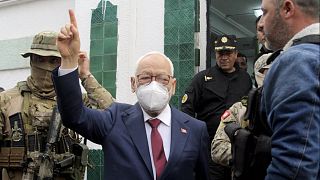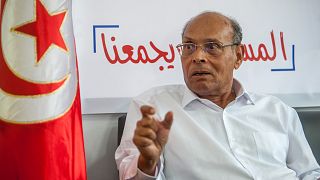Tunisia
Tunisian President Kais Saied has extended "until further notice" the suspension of parliament, which has been suspended since the July 25 coup that gave Saied full power.
On July 25, Mr. Saied invoked the constitution to grant himself full powers, dismiss the head of government, Hichem Mechichi, and suspend parliament for 30 days.
On Monday evening Mr. Saied "issued a presidential decree extending the exceptional measures concerning the suspension of the activities of the parliament as well as the lifting of the immunity of all deputies until further notice," said the presidency in a brief statement on its Facebook page.
In addition to the extension of the suspension of parliamentary activities, analysts expected the president to announce new measures to reassure public opinion and the international community but this was not the case.
Since the coup, President Said has yet to name a new government or unveil a "roadmap", as requested by several political parties and civil society organizations.
"The president will address the Tunisian people in the next few days," the presidency said in its statement, without giving further details.
On July 25, Mr. Saied had announced that he was taking over the executive branch, with "the help of the government" to be led by a new leader appointed by him.
His decision was denounced as a "coup d'état" by some jurists and his opponents, in particular the Islamist-inspired party Ennahdha, the main parliamentary force in the country, which has been plagued by political deadlocks for months.
In the face of these accusations, Mr. Saied regularly repeats that he acts strictly "within the framework of the law" and of the Constitution adopted in 2014.
Many Tunisians have welcomed Mr. Saied's measures with enthusiasm: exasperated by their political class, they expect strong action against corruption and impunity in a country where the social, economic and health situation is very difficult.
But if the president enjoys a strong popularity in Tunisia, his stunt worries the international community, which fears that the cradle of the Arab Spring is regressing towards authoritarianism.
- Exceptional regime -
The anti-corruption "purge" launched by the president since his coup in July has raised concerns and fears that freedoms in Tunisia are being rolled back.
Former officials, businessmen, judges and members of parliament have been targeted by arrests, travel bans and house arrest, simply by decision of the Ministry of the Interior, without justification, human rights defenders have denounced.
A legal theorist, Kais Saied has presented himself since coming to power in 2019 as the ultimate interpreter of the Constitution, and relies on Article 80 of the constitution, which envisages exceptional measures in case of "imminent danger" to national security, to justify the measures taken.
"Freedom of movement is a constitutional right that I am committed to guaranteeing," President Saied said last week. "But some people will have to answer to the courts before they can travel," he said.













00:48
Cyril Ramaphosa arrives in Canada for G7 summit
00:35
Ex-Tunisian PM jailed for 34 Years
Go to video
Tunisia jails opponents, critics of President Saied
Go to video
Tunisia: new Human Rights Watch report finds dramatic increase in politically motivated arrests
01:02
Tunisia jails opposition politicians and journalist as crackdown on political dissent resumes
Go to video
São Tomé and Príncipe: President fires Prime Minister and government